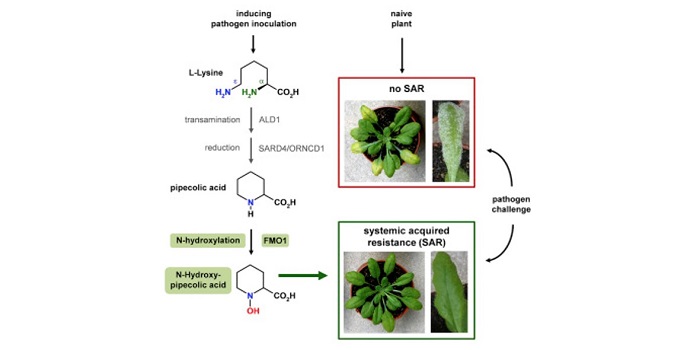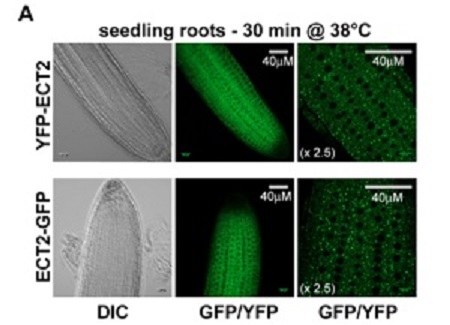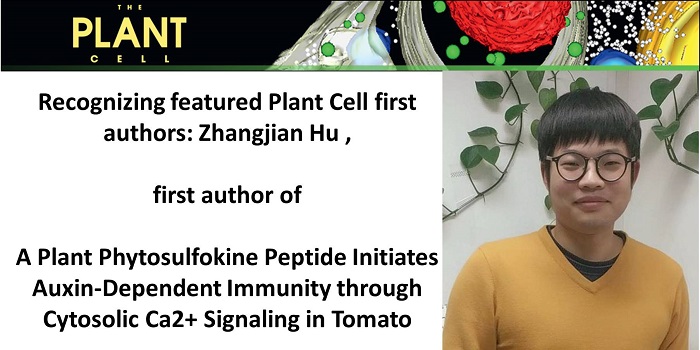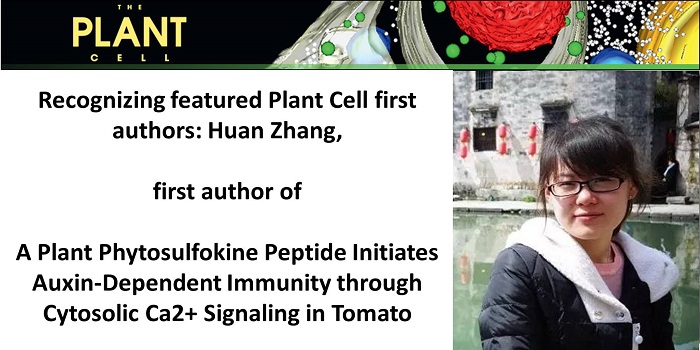
Emergence of N-hydroxy-pipecolic acid as a key long-distance immunity signal in Arabidopsis
Systemic acquired resistance is a form of long-distance immunity employed by plants to protect distal uninfected tissues upon localized pathogen attack. Over the past two decades, a number of putative long-distance signals have been described as regulators of systemic immunity including the lysine catabolite…

Gene boosts rice growth and yield in salty soil
In a new study published in The Plant Cell, a team of researchers identified a gene that limits yield losses in rice plants exposed to salt stress and deciphered the underlying mechanism.
Soil salinity poses a major threat to food security, greatly reducing the yield of agricultural crops. Rising…

Calcium Dynamics in Chloroplasts
Transient changes in intracellular free Ca2+ concentration ([Ca2+]) are involved in the sensing of a wide variety of abiotic and biotic stimuli iIn plants. The unique spatiotemporal patterns in [Ca2+] that result enable specific stimulus-response coupling. Several intracellular compartments of the plant…

A Small Peptide Signal Regulates Systemic Responses to Plant Water Status ($)
Plant organs perceive their immediate environment and communicate over both short and long distances to regulate the physiology of the affected organ as well as organs distal to the perceived stress. To accomplish this, plants utilize an impressive array of signalling molecules which range from small…

Trichome branching is regulated by the m6A reader ECT2 in Arabidopsis (OA)
Methylation at position N6 of adenosines (m6A) is the most abundant mRNA chemical modification. It influences gene activity at the post-transcriptional level and is thus important for development. m6A is decoded by reader proteins. While the repertoire of reader proteins has been extensively studied…

SIAMESE-RELATED1 (SMR1) has roles in leaf growth repression under drought (OA)
The cell cycle of plants is regulated by signals that integrate endogenous and environmental cues to allow for adaptation to varying conditions. When a plant is under drought stress, cell division in young leaves is stopped by an active mechanism to conserve resources. Cyclin-dependent kinase-inhibitory…

To the VIKtor goes the Spoils: The Phytophthora infestans Effector Pi17316 Manipulates the Host MAP3K VIK to Promote Disease Susceptibility in Potato (OA)
Phytopathogens secrete effector proteins that enter and manipulate plant cells to facilitate microbial growth in planta. This is often achieved by exerting specific activity onto key host proteins to divert host cellular functions towards supporting pathogen growth. In a recently published article in…

Recognizing featured Plant Cell first authors: Zhangjian Hu
Zhangjian Hu, featured first author of A Plant Phytosulfokine Peptide Initiates Auxin-Dependent Immunity through Cytosolic Ca2+ Signaling in Tomato
Current Position: Graduate student in the Department of Horticulture, Zhejiang University, China
Education: B.S. (2012) in Applied Biological Science…

Recognizing featured Plant Cell first authors: Huan Zhang
Huan Zhang, featured first author of A Plant Phytosulfokine Peptide Initiates Auxin-Dependent Immunity through Cytosolic Ca2+ Signaling in Tomato
Current Position: Graduate student in the Department of Horticulture, Zhejiang University, China.
Education: Bachelor's degree (2013) from the College…

